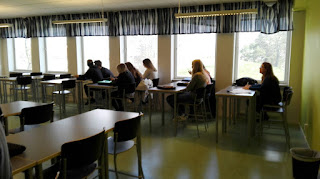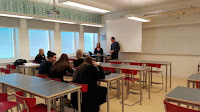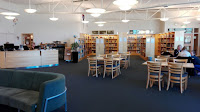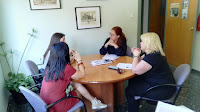Comienza el segundo proyecto Erasmus+ del
IES RAMON LLULL.
Y comienza con la asistencia de la Coordinadora ERASMUS+ al IV encuentro Nacional de proyectos de Acción Clave 1 (KA1) - Movilidad para el Aprendizaje del Personal de Educación Escolar (KA101) y de Educación de Personas Adultas (KA104).
Han sido dos días intensos de conocer nuevos aspectos y pormenores de esta convocatoria. De recordar todo lo que hay que reflejar en la memoria final de este proyecto que ahora acaba. Y lo más importante, de difundir las acciones de internacionalización de mi centro entre los colegas de España.
De igual manera que valoramos la educación no formal para nuestros alumnos y nos esforzamos por ofrecerles oportunidades para mejorar todas y cada una de sus competencias, las conversaciones con colegas durante el café, la comida, los talleres, son momentos de aprendizaje y difusión.
 No extendemos grandes pancartas o presentamos excelente Prezi, simplemente contamos de corazón cuánto se esfuerzan nuestros compañeros del claustro y cómo disfrutan nuestros alumnos.
No extendemos grandes pancartas o presentamos excelente Prezi, simplemente contamos de corazón cuánto se esfuerzan nuestros compañeros del claustro y cómo disfrutan nuestros alumnos.
De estas jornadas me llevo muchos apuntes para elaborar la memoria final del actual proyecto....
muchas "buenas prácticas" que tenemos que implementar para el desarrollo y seguimiento del segundo proyecto....
y muchos contactos para organizar algún tipo de encuentro entre comunidades autónomas para difundir nuestros proyectos.
Agradecer a la ciudad de Valladolid la amable acogida, al Sepie la organización, y a los representantes de la Comunidad Valencia su trabajo día a día.
Àngels Romeu
Coordinadora ERASMUS+
Directora IES Ramon Llull
























































